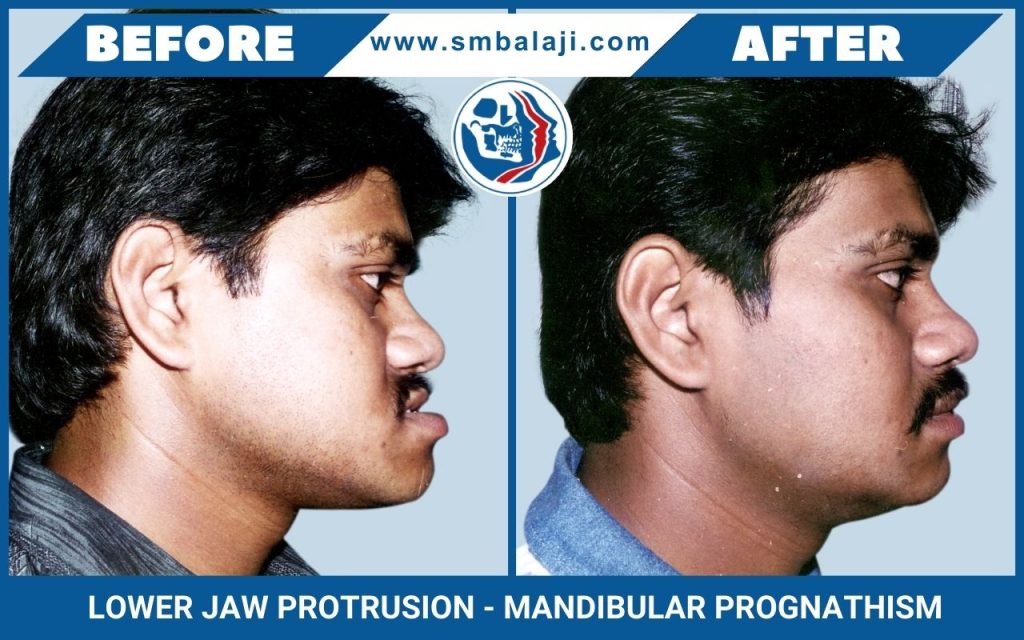MANDIBULAR OSTEOTOMY | LOWER JAW SURGERY
Mandibular osteotomy, commonly known as lower jaw surgery, is a precision procedure aimed at realigning the mandible or lower jawbone. This corrective surgery addresses various conditions, including overbite, underbite, crossbite, open bite, TMJ disorders, and facial asymmetry.
- Overbite: An overbite occurs when the upper teeth overlap the lower teeth too much when the mouth is closed.
- Underbite: An underbite occurs when the lower teeth overlap the upper teeth too much when the mouth is closed.
- Crossbite: A crossbite occurs when the upper and lower teeth do not meet correctly.
- Open bite: An open bite occurs when there is a gap between the upper and lower teeth when the back teeth are biting together.
- TMJ disorders: Temporomandibular joint (TMJ) disorders are a group of conditions that affect the jaw joint. TMJ disorders can cause pain, clicking, and popping in the jaw joint.
- Facial asymmetry: Mandibular osteotomy can also be used to correct facial asymmetry, where one side of the face is larger than the other.
Typically recommended for adults, mandibular osteotomy is performed under general anesthesia. The surgery involves an incision in the gum above the lower teeth, followed by precise bone cutting and repositioning. Securing the bone in place is achieved using screws and small metal plates.
Recovery from mandibular osteotomy spans several weeks or months, with patients adhering to a soft diet and avoiding strenuous activities. Common post-surgery experiences include pain, swelling, and bruising.
While mandibular osteotomy is a safe and effective means of significantly improving lower jaw alignment and facial symmetry, it is not without risks. Potential complications include infection, bleeding, nerve damage, and numbness or tingling in the lips, teeth, or gums.
For those contemplating mandibular osteotomy, open dialogue about the procedure’s risks and benefits with a dentist or oral and maxillofacial surgeon is crucial. Additionally, ensuring optimal health before undergoing surgery is of paramount importance.
Lower Jaw Protrusion | mandibular prognathism

Lower jaw protrusion, also known as mandibular prognathism, is a condition in which the lower jawbone (mandible) protrudes forward excessively beyond the upper jawbone (maxilla)
Lower jaw retrusion | mandibular retrognathia

